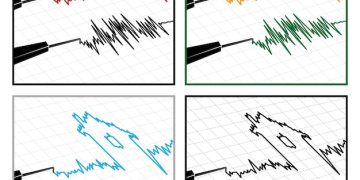Index Funds: Your Low-Cost Path to Long-Term Wealth

Investing in index funds presents a compelling strategy for long-term wealth accumulation, offering diversification, low costs, and passive management, making it an accessible and efficient option for both novice and experienced investors seeking to build a solid financial future.
Embark on a journey to financial security with investing in index funds: a low-cost strategy for long-term wealth accumulation, a powerful tool that simplifies investing and maximizes returns over time.
Understanding Index Funds: The Basics
Index funds are a type of mutual fund or exchange-traded fund (ETF) designed to track a specific market index, such as the S&P 500. This means the fund holds investments that mirror the composition and weighting of the index it follows.
By mirroring an index, these funds aim to replicate its performance, offering investors broad market exposure and diversification in a single investment vehicle.
What Makes Index Funds Different?
Unlike actively managed funds, where a fund manager selects investments with the goal of outperforming the market, index funds are passively managed. There is no active stock picking or market timing involved.
This passive approach is key to understanding the low-cost nature and long-term appeal of index funds.

Benefits of Index Funds
- Diversification: Index funds provide instant diversification across a broad range of stocks, reducing the risk associated with investing in individual companies.
- Low Costs: Due to their passive management style, index funds typically have lower expense ratios compared to actively managed funds.
- Transparency: Investors know exactly what they are holding in an index fund, as its holdings are readily available and mirror the underlying index.
Ultimately, index funds offer a straightforward and efficient way for investors to participate in the overall market’s growth with minimal effort and expense.
Why Choose Index Funds for Long-Term Investing
When it comes to long-term investing, the benefits of index funds become even more pronounced. The combination of diversification, low costs, and a buy-and-hold approach can lead to significant wealth accumulation over time.
Their simplicity and passive nature make them an attractive option for investors of all experience levels, particularly those focused on retirement planning or other long-term goals.
The Power of Compounding
One of the most significant advantages of long-term investing in index funds is the potential for compounding returns. Reinvesting dividends and capital gains allows your investments to grow exponentially over time.
This compounding effect can be especially powerful in index funds due to their low costs and broad market exposure.
Minimizing Investment Costs
Over the long term, even small differences in expense ratios can have a substantial impact on investment returns. Index funds’ low-cost structure helps investors keep more of their earnings.
By minimizing fees and expenses, you can maximize the amount of your investment that goes towards generating returns.
- Lower Costs
- Higher Returns
- Long Term Growth
The long-term approach to investing in Index Funds allows for better financial gains through the power of a low cost investment that is diversified.
Understanding Expense Ratios and Other Costs
A key factor to consider when evaluating index funds is the expense ratio, which represents the annual cost of operating the fund, expressed as a percentage of the fund’s assets.
It’s crucial to compare expense ratios among different index funds tracking the same index to ensure you’re getting a competitive rate.
What is an Expense Ratio?
The expense ratio covers the fund’s management fees, administrative costs, and other operating expenses. Even though index funds are passively managed, there are still costs associated with running the fund.
A lower expense ratio means more of your investment dollars are working for you, rather than going towards fund expenses.
Other Potential Costs
While expense ratios are the primary cost to consider, investors should also be aware of other potential costs associated with index fund investing.
These may include brokerage commissions (if not investing through a commission-free platform), transaction fees, and taxes.

How to Choose a Low-Cost Index Fund
- Compare Expense Ratios: Look for index funds with the lowest possible expense ratios for the index you want to track.
- Consider Fund Size: Larger funds often have lower expense ratios due to economies of scale.
- Review Tracking Error: Check how closely the fund’s performance matches the underlying index. A lower tracking error indicates better replication.
Knowing the costs associated with ETFs and Index Funds are imperative to a sound and efficient investment plan in the long term.
Building a Diversified Portfolio with Index Funds
One of the great advantages of index funds is their ability to easily build a diversified portfolio. Instead of meticulously hand-picking individual stocks, you can gain exposure to different asset classes and market segments through a selection of index funds.
This diversified approach can help reduce overall portfolio risk and improve long-term returns.
Asset Allocation
The foundation of a diversified portfolio is asset allocation, which involves dividing your investments among different asset classes, such as stocks, bonds, and real estate.
Index funds can be used to represent each of these asset classes in your portfolio.
Index Funds for Different Asset Classes
There are index funds available to track virtually every segment of the market, from large-cap U.S. stocks to international bonds.
This allows investors to create a well-rounded portfolio with just a few carefully chosen index funds.
- US Stock Index Funds
- International Stock Index Funds
- Bond Index Funds
By strategically combining different index funds, investors can build a portfolio that aligns with their risk tolerance and investment goals.
Tax-Efficient Investing with Index Funds
Taxes can have a significant impact on investment returns, especially in taxable accounts. Index funds, with their low turnover and passive management style, tend to be more tax-efficient than actively managed funds.
Understanding the tax implications of index fund investing is crucial for maximizing after-tax returns.
Lower Turnover, Lower Taxes
Turnover refers to the rate at which a fund buys and sells its holdings. Index funds typically have lower turnover rates compared to actively managed funds.
This is because they passively track an index and don’t engage in frequent trading, one of the best qualities of Investing in Index Funds: A Low-Cost Strategy for Long-Term Wealth Accumulation
Tax-Advantaged Accounts
To further minimize the impact of taxes on your investments, consider utilizing tax-advantaged accounts, such as 401(k)s, IRAs, and Roth IRAs.
These accounts offer tax benefits that can help you grow your wealth more efficiently.
Tax-Loss Harvesting
Tax-loss harvesting is a strategy that involves selling investments that have declined in value to offset capital gains taxes.
Index funds can be useful for tax-loss harvesting, as they provide a broad market exposure that can be easily replaced with a similar index fund.
Getting Started with Index Fund Investing
The process begins by opening a brokerage account with a reputable firm that offers a wide selection of index funds. Look for a brokerage that offers low or no commission fees and provides educational resources to support your investment journey.
With just a small amount of capital, you can start building a diversified portfolio of index funds and working toward your long-term financial goals.
Opening a Brokerage Account
Opening a brokerage account is the first step towards investing in index funds: a low-cost strategy for long-term wealth accumulation.
Once your account is open, you can deposit funds and begin buying index funds.
Choosing the Right Index Funds
Selecting the right index funds for your portfolio requires careful consideration of your investment goals, risk tolerance, and time horizon.
Consider the expense ratios, tracking error, and diversification benefits of each fund before making a decision.
- Open brokerage account
- Choose best Index Funds
- Contribute to long term plan
Once you have selected your index funds, develop a regular investment plan to consistently contribute to your portfolio over time. This could involve setting up automatic transfers from your bank account to your brokerage account and scheduling regular purchases of index funds.
| Key Point | Brief Description |
|---|---|
| 💰 Low-Cost | Lower expense ratios compared to actively managed funds. |
| 📈 Diversification | Instant exposure to a broad range of stocks, reducing risk. |
| ⏱️ Long-Term Growth | Potential for compounding returns and wealth accumulation over time. |
| 🎯 Tax Efficiency | Lower turnover rates result in fewer taxable events and greater tax efficiency. |
Frequently Asked Questions
▼
An index fund is a type of investment fund designed to track the performance of a specific market index, such as the S&P 500. It holds stocks or bonds in the same proportions as the index it follows.
▼
Index funds are low-cost because they are passively managed, meaning there isn’t a team of analysts actively buying and selling investments. This reduces management fees and operating expenses.
▼
Yes, index funds are often recommended for beginners due to their simplicity, diversification, and low cost. They offer an easy way to get broad market exposure without needing extensive investment knowledge.
▼
Index funds are generally tax-efficient due to their low turnover. However, you may still owe taxes on dividends and capital gains distributions. Consider investing in tax-advantaged accounts like 401(k)s or IRAs.
▼
Consider your investment goals, risk tolerance, and time horizon. Look for index funds with low expense ratios and a good tracking record of the underlying index. Diversify across different asset classes.
Conclusion
Investing in index funds is an investment toward long-term growth that can set you up with a stable financial future. By following and adhering to a diversified investment plan, you can increase your potential to succeed.





